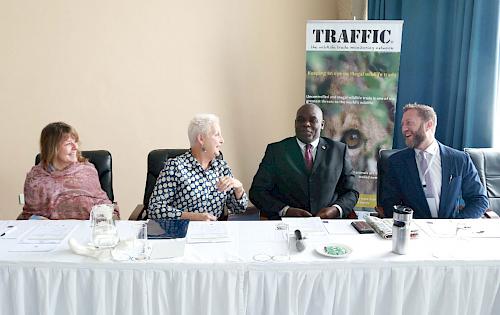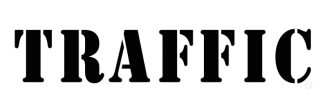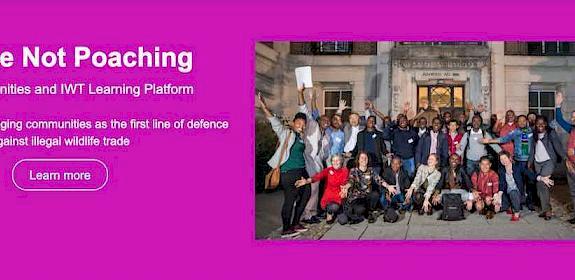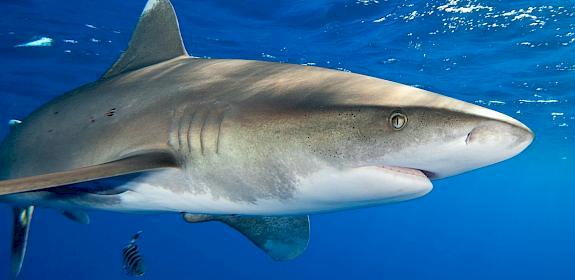Uganda Legal Authorities Collaborate to Strengthen Efforts Against Illegal Wildlife Trade
Entebbe, Uganda, July 2019—The Uganda Ministry of Tourism, Wildlife and Antiquities (MTWA) in collaboration with TRAFFIC, with support from the USAID-funded Wildlife Trafficking, Response, Assessment and Priority Setting (Wildlife TRAPS) Project, last week convened a two-day national stakeholders’ forum to identify the needs and priorities of Uganda’s judiciary and prosecution sectors to curb wildlife crime.

Nick Ahlers, the leader of the Wildlife TRAPS project, explained that the project uses targeted assessments, collaborative action planning, and innovative approaches to identify and advance interventions that can break trafficking chains and disrupt organised criminal networks.
The national forum aimed to identify priorities, help build capacity, and explore partnerships to mobilise resources for strengthening the legal sector’s response to wildlife crimes. The forum also provided an opportunity for governmental institutions, partner organisations, and donors to support the judiciary and prosecution activities to address wildlife and forest crime and identify national priorities in these areas.
Event participants included representatives of the Ministry of Tourism, Wildlife and Antiquities and Ministry of Justice and Constitutional Affairs, as well as representatives of various organisations, including the African Wildlife Foundation (AWF), International Union for Conservation of Nature (IUCN), INTERPOL, Natural Resource Conservation Network (NRCN), Uganda Conservation Foundation (UCF), United Nations Office on Drugs and Crime (UNODC), Uganda Prison Service, Uganda Wildlife Authority (UWA), Wildlife Conservation Society (WSC) and World Wide Fund for Nature (WWF).
Participants identified several current issues and challenges, frequently citing corruption as a critical factor in facilitating wildlife crimes in the country. Participants, then, prioritised actions in the judiciary and prosecutorial sectors for curbing wildlife and forest crime in Uganda.
A post-meeting declaration was issued, where participants outlined their commitment to addressing wildlife crime and called for action by the responsible government institutions and partners.
The Director of Public Prosecution, His Worship Mike Chibita, during the opening speech, said the forum came at the right time and presented an opportunity for governmental institutions and partner organisations to support judiciary and prosecution activities that will tackle and disrupt wildlife and forest crime. He also told participants about the high-level political support and international and regional co-operation to combat wildlife and forest crime and that the government would build on existing commitments and new partnerships to fight and curb criminal networks.
The United States Ambassador to Uganda Deborah Malac said criminal networks erode both the tools and the prospects for sustainable development, concluding that wildlife crime is more than an enforcement or conservation issue—it is fundamentally a development issue.
Capacity building, training, law enforcement, and regional and international co-operation supporting the judgement and prosecution of wildlife crime are critical for combating this extremely serious crime.
Capacity building is one of the three approaches in the United States National Strategy to Combat Wildlife Trafficking. This includes a provision for financial or technical assistance to improve the capacity of governments and agencies to enforce wildlife laws and prosecute wildlife criminals.
The Director of Public Prosecution, Minister of Tourism, Wildlife and Antiquities, and TRAFFIC all expressed their appreciation of the support from USAID, other development partners, and international NGOs in helping the Government of Uganda in their efforts to curtail wildlife and forest crimes.
Notes:
Download the workshop proceedings
For more information contact;
Stephen Fred Okiror
Senior Wildlife Officer, Ministry of Tourism Wildlife and Antiquities
Po box 4241 Kampala
Rwenzori Towers, 2nd Floor, Plot 6 Nakasero Rd
Email: /
Office: +256 414 561 725
Mobile: 0772 931 963 or 0756 042 371
About USAID

The United States Agency for International Development (USAID) is responsible for the majority of overseas development assistance from the United States Government and works to end extreme poverty and promote resilient, democratic societies while advancing security and prosperity for America and the world. www.usaid.gov/
About TRAFFIC

TRAFFIC is a leading non-governmental organisation working to ensure that trade in wild species is legal and sustainable, for the benefit of the planet and people.
About Wildlife TRAPS
The USAID-funded Wildlife Trafficking, Response, Assessment and Priority Setting (Wildlife TRAPS) Project is an initiative that is designed to secure a transformation in the level of co-operation between an international community of stakeholders who are impacted by illegal wildlife trade between Africa and Asia. The project is designed to increase understanding of the true character and scale of the response required, to set priorities, identify intervention points, and test non-traditional approaches with project partners.




